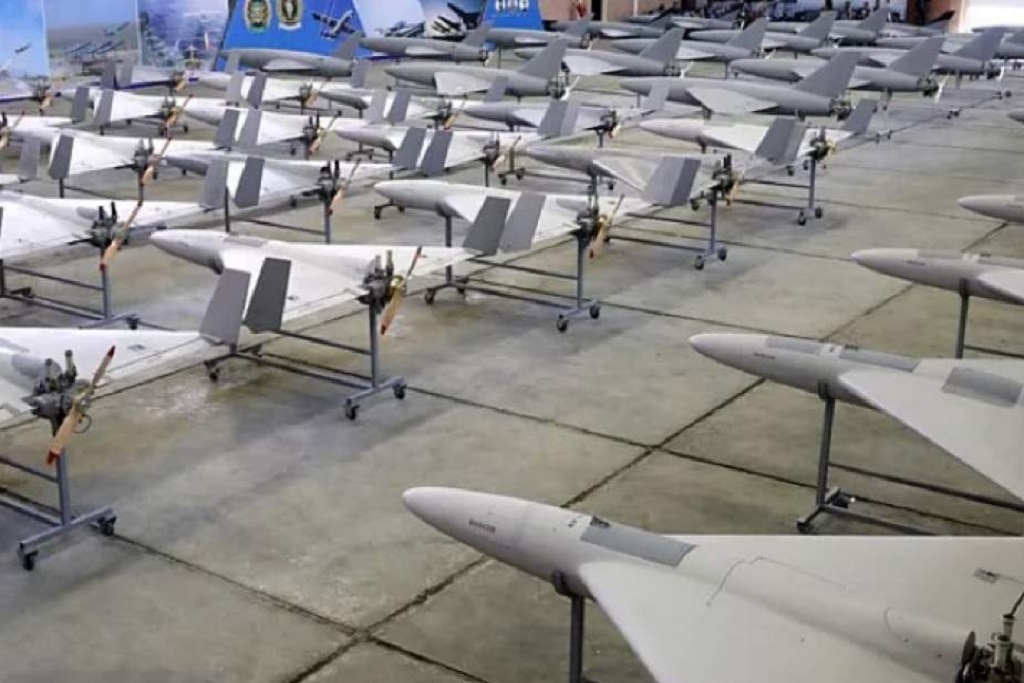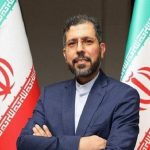FARAAN – Eight years after Iran nuclear deal, another international restriction against Tehran was lifted, opening the door for Iranian armed forces’ foreign dealings.
In a note sent to the member states of the UN, the secretariat of the UNSC officially ended curbs set out in paragraphs 3, 4, and 6 (c) and (d) of Annex B to Resolution 2231 that included restrictions on ballistic missile-related activities and transfers, as well as sanctions on some Iranian individuals and entities.
Issued in 2015, the Resolution 2231 requires Iran not to produce ballistic missiles designed to carry nuclear weapons, or to be later developed to carry weapons of mass destruction. The resolution marked the end of restrictions with a ‘sunset clause’, namely setting a timetable according to which restrictions on Iran’s nuclear program would be lifted, as well as sanctions on the production of weapons, including missiles, would be lifted, provided that Iran commits to the nuclear deal.
The rest of the UN sanctions on Iran were lifted in the day of implementation of the nuclear agreement, officially called Joint Comprehensive Plan of Action (JCPOA), followed by termination in 2020 of restrictions on conventional and light weaponry.
Ex-Foreign Minister of Iran Mohammad Javad Zarif, under whom the JCPOA was signed with world powers, in reaction to termination of Iran sanctions said that Resolution 2231 has “removed a great danger from Iran in the section of lifting of arms and missile sanctions….In the tenth year of implementation, Resolution 2231, the JCPOA and Iran’s nuclear issue, which is on the agenda of the Security Council, will automatically be removed from the agenda. Therefore, the next two years will be a critical time for the country.”
With the removal of the arms restrictions, Iran now can freely trade arms with world countries. Although the unilateral Western sanctions remain in place, over the past two years, the world countries have shown that they no longer follow the Western sanctions. So, when it comes to the arms trade, too, many world actors will not follow the West.
In recent years, Iran has achieved many capabilities in the field of missiles and drones, and even the Westerners themselves admit this. Western media once said that Iran is one of the top five countries in the world in the field of drones and may become one of the major exporters of drones to the countries of the region in the coming years.
In the past year, Iranian military officials talked about increasing interest of countries in the Iranian weapons. General Yahya Rahim Safavi, the senior advisor to the Iranian Supreme Leader Seyyed Ali Khamenei, in October 2022 said: “We are now at a point that 22 world countries apply for our drones.”
Also, in another comment in September, General Reza Talaee Nik, the deputy director of management development and strategic planning and spokesman of the Ministry of Defense and Armed Forces Logistics, commented on UAV exports to other countries, saying: “Now, there are many applicants for our UAVs. We received applications also from some Western and European countries but they preferred their names to remain in anonymity.
The list of applicants includes countries from Latin America, Africa and Central Asia like Ethiopia, Bolivia, Tajikistan, Armenia, Russia, and Venezuela.
Second diplomatic defeat for the US
While the UN sanctions have officially ended according to the JCPOA the Western power signed, the West defies the UNSC decision.
On September 15, the European Troika, in a letter to Josep Borrell, the European Union’s foreign policy chief, claimed without providing evidence and documents that they do not intend to relieve Iran’s missile sanctions due to the so-called Islamic Republic’s unfulfillment of its obligations under the JCPOA as well as its role in Russia’s war against Ukraine. The US followed suit, saying it will continue the missile sanctions on Iran.
In addition to refusing to respect the UNSC decision, the US announced new sanctions and warned foreign companies of providing any sensitive technology to Tehran helping develop its drone and missile programs.
Although the US and its allies have tried to incite the international community against the Islamic Republic by accusing Tehran of providing some of the weapons needed by Russia in Ukraine war in the past year, these efforts did not succeed, and this time Washington and the European Troika are alone in their anti-Iranian diplomatic campaign.
End of missile sanctions is not the first diplomatic defeat of the US-led Western camp in this case and in July 2020 and a few months before expiration of the sanctions on conventional weapons, the time’s US Secretary of State Mike Pompeo said that the US intends to continue the UN sanctions that will shortly expire. But despite the Trump administration going to a great length with the ‘maximum pressure’ policy, Washington failed to convince UNSC members to extend Iran sanctions.
American officials have always claimed that if Iran arms sanctions are lifted, the world would face substantial instability. But the reality is that all these charges against Tehran are aimed at defending the security of the Israeli regime that incites the West to step up pressures on Iran. The same accusation was made by the US Secretary of State Antony Blinken when the UNSC sanctions expired. He said that the Iranian missiles pose a threat to the security of Israel and Persian Gulf Arab states. But the ongoing Gaza war proves tyat the origin of all regional instabilities is the US that is standing by the Israelis in their crimes and massacres at full force, and despite the international pressure to stop killing of the civilians, Washington is standing in the face of the international demands for end of war.
The consecutive American diplomatic losses to Iran have tarnished Washington’s global image. Actually, the US has never been this discredited and the repeated visits of the Asian officials to Iran and signing trade and economic agreements with Tehran indicate that the Western plans to isolate he Islamic Republic have met their failure.










